April 8, 2024
Hearings by a Committee or Public organisation
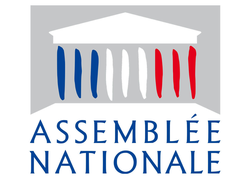
🌐 follow Marie-Anne Frison-Roche on LinkedIn
🌐subscribe to the Newsletter MAFR Regulation, Compliance, Law
🌐subscribe to the Video Newsletter MAFR Surplomb
____
► Full reference: M.-A. Frison-Roche, Audition by the French National Assembly's Law Commission on the confidentiality of legal advice (the "Legal Privilege à la française"), 8 April 2024.
____
I had expressed my opinion on the need for French legal system to better ensure the confidentiality of legal opinions drawn up by internal lawyers in companies, in an article published in 2023 in the French academic journal Recueil Dalloz: "La compliance, socle de la confidentialité nécessaire des avis juridiques élaborés en entreprise (Compliance Law, the cornerstone of the necessary confidentiality of legal opinions drawn up by companies". Compliance, the cornerstone of the necessary confidentiality of legal opinions drawn up by companies).
Following on from this article, and as a specialist in Regulatory and Compliance Law, I was invited by the French National Assembly's Law Commission to give my opinion on the proposed law n°2022 on the confidentiality of consultations by in-house lawyers ( Proposition de loi n°2022 relative à la confidentialité des consultations des juristes d'entreprises), often named in French Legal privilege à la française.
____
► Summary of this presentation: I have shown that we must start not from the person (external lawyer / in-house lawyer, for instance) and not even centrally from the information in question (branch of Law by branch of Law), but from the Goals pursued, i.e. from Compliance Law.
In this respect, we must not be misled. We could do so by confusing mechanical "conformity" with this new branch of Law: Compliance Law. Conformity is merely a tool of Compliance Law. Out of concern for the correct use of the French language, as "Compliance" appears to many to be an American term, the proposed law uses the term "conformité" but refers to Compliance Law. Conformity" is merely the mechanical obligation to obey the applicable rules, which is the fate of any subject of law, subject to the mandatory rules, a passive position common to everyone in a State governed by the Rule of Law.
Compliance Law is quite different, with conformity being just one of its tools. On the one hand, Compliance Law imposes an active obligation, and on the other, it targets only certain legal subjects: companies. For them, it is a matter of ensuring that certain goals set by the legislator are actually achieved, which becomes effectively and efficiently possible thanks to the power of companies (financial power, organizational power, management power, information power, location power, information power). These "Monumental Goals" are either negative (preventing systems from collapsing) or positive (ensuring that systems improve).
For companies to play this role - a role that is not required of other "ordinary" people, as they are not "in a position" to take on such a burden, particularly in terms of finance and organization - those in charge of organizing themselves and taking action, i.e. companies, must "detect and prevent" system failures (as required by laws such as US FCPA, French so-called Sapin 2 and Vigilance laws, European CSRD and CS3D, etc.). To "detect and prevent", which is an order from the Legislator, companies need to know the weaknesses of their organization and of the people they answer to, in order to remedy them: "remediation" is a "remedy" to ensure the "sustainability" of "systems".
This set of key concepts lies at the heart of Compliance Law, the branch of law That focuses on the future.
It is the legal opinions, for example, and in particular the report resulting from internal investigations, that enable those who decide and control this organization (the managers) to fulfill the role entrusted to them by the State. If these opinions are not confidential, the result is not the remediation and preservation of global systems (competitive, climatic, digital, energy, banking, financial systems, etc.): the effective managerial solution in Ex-Ante then consists not in seeking information but, conversely, in not seeking this information, since obtaining it will lead to the weakening of the company through the sanction that the information produces, for lack of confidentiality.
The interests of the system, the State and the company are disjointed, because Compliance Law implies their alliance, which is what the confidentiality of legal opinions produces.
This is why Compliance Law must, by its very nature, ensure the confidentiality of legal advice.
____
When asked about the actual text of the proposal, I felt that the explanatory memorandum was particularly relevant, since the link between Compliance Law (admittedly called "conformité" in the proposed bill by a rather too mechanical respect for the French legal language, from which the French legislator has so far been unable to dispense....) is clear, that this confidentiality is attached to the document, that the company can waive it, and that it is clearly distinct from professional secrecy, all three of which should be approved.
For my part, I've suggested a change to the procedure, which must be open to the confidentiality process.
Indeed, public authorities, such as Competition and Regulatory Authorities, are rather hostile to this confidentiality.
Having contributed a great deal to the development of Regulatory Law, and continuing to do so, I believe that Competition and Regulatory Authorities have a logic that needs to be understood. It is as follows: Regulatory Authorities are Ex-Ante (this was less true for the Competition Authorities, but it too is increasingly so) and are in a situation of information asymmetry. Their first concern is to combat this asymmetry. If we translate this into legal terms, it means that in order to carry out their mission of general interest, they must seek out all available information. However, legal opinions, and in particular the internal investigation report, are what I have described as "evidence treasure". In their logic, the Competition and Regulatory Authorities want to seize it.
There is therefore a conflict between two general interest logics: the general interest of the Monumental Goals of Compliance Law actively served by companies, at the behest of the Legislation, which requires the confidentiality of legal opinions, and the general interest of the action of Regulators who fight against information asymmetry and seek to seize the evidential treasures of legal opinions.
For the reasons given above, I believe that the Monumental Goals of Compliance must prevail. All the more so as the rights of the defence converge to this end.
Ultimately, however, it is up to the Judge, in the event of open conflict, to balance these two claims, which are based on the service of the general interest.
However, reading the proposition, it seems to me that the rather complicated procedure entrusts this to a multiplicity of judges... But since it is indeed Compliance Law which is the best basis for "legal privilege à la française", Compliance Law, which is the extension of Regulatory Law and whose advanced point is the Vigilance duty, it would be more appropriate and logical to entrust this litigation to the exclusive jurisdiction of the Paris Judicial Court. This court has already the exclusive competence for litigation about Vigilance.
This would have another fortunate effect: on appeal, the dispute would be brought before the Paris Court of Appeal, which has exclusive jurisdiction (barring exceptions) over disputes concerning decisions on French Competition and Regulatory Authorities. The judges of the "Pôle 5" (12 chambers specializing in economic law) of the very specific court are seasoned and would be well-suited to strike the necessary balance between the two general interests involved.
I think a procedural amendment to the proposed text along these lines would be welcome.
____
► See in my work those that may be of interest with regard to this hearing (all with English summary, many with bilingual working paper) ⤵️
🕴️M.-A. Frison-Roche, 📝Le rôle du juge dans le déploiement du Droit de la Régulation par le Droit de la Compliance, in 📗Conseil d'État et Cour de cassation, De la Régulation à la Compliance : quel rôle pour le Juge ?, 2024.
🕴️M.-A. Frison-Roche, 📝Compliance et conformité : les distinguer pour mieux les articuler, 2024.
🕴️M.-A. Frison-Roche (dir.),📕L'obligation de compliance, 2024.
🕴️M.-A. Frison-Roche et M. Boissavy (dir.), 📕Compliance et droits de la défense, 2024.
🕴️M.-A. Frison-Roche (dir.), 📕Compliance et droits de la défense, Les Buts Monumentaux de la compliance, 2022.
🕴️M.-A. Frison-Roche, 📝Contrat de compliance, clauses de compliance, 2022.
🕴️M.-A. Frison-Roche, 📝Le Droit de la compliance, 2016.
________
March 7, 2024
Conferences
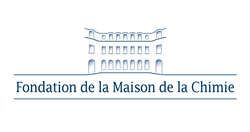
🌐follow Marie-Anne Frison-Roche on LinkedIn
🌐subscribe to the Newsletter MAFR Regulation, Compliance, Law
____
► Full Reference: M.-A. Frison-Roche, "L’enjeu de la confidentialité des avis juridiques internes au regard des « Buts Monumentaux » de la Compliance" ("The issue of confidentiality of in-house legal opinions with regard to the "Monumental Goals" of Compliance"), in L’instauration d’un Legal Privilege à la française. Le temps de l’action au service de la souveraineté et de la compétitivité de nos entreprises, Association française des juristes d'entreprise (AFJE), Association nationale des juristes de banque (ANJB) et Cercle Montesquieu, March 7, 2024, Maison de la Chimie, 28 rue Saint Dominique Paris
____
📝On the same topic, read the article of Marie-Anne Frison-Roche "La compliance, socle de la confidentialité nécessaire des avis juridiques élaborés en entreprise" ("Compliance, the cornerstone of the confidentiality required for in-house legal opinions")
________
Feb. 28, 2024
Publications

🌐follow Marie-Anne Frison-Roche on LinkedIn
🌐subscribe to the Newsletter MAFR Regulation, Compliance, Law
____
► Full Reference: M.-A. Frison-Roche "Circuler dans le temps pour mettre en phase Compliance et droits de la défense ("Moving through Time to align Compliance with the rights of the defence")", in M.-A. Frison-Roche et M. Boissavy (dir.), Compliance et droits de la défense. Enquête interne – CJIP – CRPC, Journal of Regulation & Compliance (JoRC) and Dalloz, coll. "Régulations & Compliance", 2024, pp. 33-58.
____
📝read the article (in French)
____
____
📕read the general presentation of the book, Compliance et droits de la défense. Enquête interne – CJIP – CRPC, in which this article is published (in French)
____
📝read also the presentation of the other article published par Marie-Anne Frison-Roche in this book : "Connaitre les pratiques pour redessiner les frontières et accroître les points de contact entre Compliance et droits de la défense dans l’enquête interne, la CJIP et la CRPC" (Understanding practices to redraw the boundaries and increase the points of contact between Compliance and the rights of the defense in Internal Investigation, Judicial Public Interest Agreement and French guilty plea procedure)
____
► English Summary of this article: the subject of Compliance & rights of the defence is difficult to pin down because it often gives rise to totally opposing presentations, which express the initial confrontation between Compliance and rights of the defence, which seems irreducible. This initial confrontation must be acknowledged, and this is even more necessary to prevent it from becoming definitive(I)
But in a society governed by the Rule of Law, the rights of the defence are central, and the hierarchy of norms dictates that they remain the privilege of all those who risk being punished in the future. Admittedly, if we look at the course of events in a linear way, the Compliance mechanisms come in Ex Ante, whereas the rights of the defence would only be activated when the repressive procedures would later come to bear on the moral or natural person. The question would therefore not even arise, or not in a central way. But this reasoning creates a false compatibility between Compliance and the rights of the defence (II.
Indeed, it is the perspective of punishment in the future that forms the basis for the attribution of rights of the defence in the present. This consideration of the future not only allows but obliges the Law to "move in time", to always think in advance about what might happen tomorrow: this is how we must think about the Compliance methods of Internal Investigation, the DPA (or in the French legal system the Convention judiciaire d'intérêt public and the French Guilty plea procedure (CRPC) (III). As soon as these Compliance Tools are being used in practice, at the time they are being used, we must already think about how their results will be used, results which they have often been used for, because the Internal Investigation is a formidable piece of Evidence for obtaining a conviction and/or a DPA, etc. : therefore, the rights of the defence must shift over time, from the future to the present of the Information collect.
Two ambiguities that affect Compliance Law itself, ambiguities which the rights of the defence help to clarify, now appear more clearly. The first concerns the place occupied by the consent of the person who could have been protected by the rights of defence but //who exercises his/her will to renounce them (IV). Consent, in relation to the will of which it is the expression, is also linked with the future and allows Compliance once again to take precedence over the prerogatives of the individual who chooses not to benefit from it. The omnipresence of 'consent' in Compliance is enlightening here... The second ambiguity concerns the place of secrecy (V). Secrecy seems to be the prerogative of the rights of the defence. But it can also be an effective Compliance Tool when Confidentiality enables the company to detect and prevent breaches. It may even constitute the very Monumental Goal of Compliance Law. This happens when the Goal of Compliance Law, in which legal normativity is placed, becomes the protection of the individual, as is the case for personal information. That guides the European Judge, in line with the humanism that underpins European Compliance Law, in finding the right balance, this protection and effectiveness, depending on whether the information must be given or must be not.
________
Nov. 30, 2023
Conferences
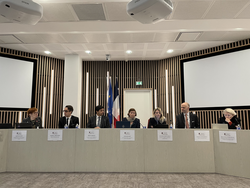
🌐follow Marie-Anne Frison-Roche on LinkedIn
🌐subscribe to the Newsletter MAFR Regulation, Compliance, Law
____
► Full Reference: M.-A. Frison-Roche, "Conclusion", in M. Boissavy, H. Dehghani-Azar, and M.-A. Frison-Roche (dir.), Journal of Regulation & Compliance (JoRC) and Conseil national des Barreaux (CNB), Compliance, vigilance et médiation (Compliance, Vigilance and Mediation), Amphitheatre of the Conseil national des Barreaux, November 30, 2023.
____
🧮see the full programme of this event
________
Nov. 16, 2023
Thesaurus : 01. Conseil constitutionnel
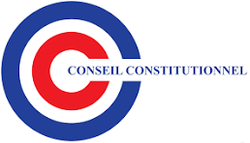
► Full Reference: Conseil constitutionnel (French Constitutional Council), November 16 2023, No. 2023-855 DC, Loi d’orientation et de programmation du ministère de la justice 2023‑2027.
____
🏛️read the decision (in French)
________
Nov. 9, 2023
Publications
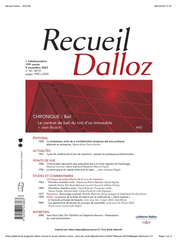
🌐follow Marie-Anne Frison-Roche on LinkedIn
🌐subscribe to the Newsletter MAFR Regulation, Compliance, Law
____
► Full Reference: M.-A. Frison-Roche, "La compliance, socle de la confidentialité nécessaire des avis juridiques élaborés en entreprise" ("Compliance, the cornerstone of the confidentiality required for in-house legal opinions"), D. 2023, p.
____
📝read the article (in French)
____
► English Summary of the article: The French Law about the Ministry of Justice's 2023-2027 Orientation and Programming ("loi d'orientation et de programmation du ministère de la justice 2023-2027") had introduced into the French legal system the confidentiality of in-house lawyers' opinions (before the French Constitutional Council, on a question of parliamentary procedure, annulled this disposition, thus leaving the question still open).
This development is necessary in order to respond to the injunction for companies to comply more and more with the regulations, which is itself only one of the tools of a wider movement: Compliance Law.
This branch of the law, notably through the French so-called Sapin 2 Act of 2016, the French Vigilance Act of 2017 and the European Digital Services Act (DSA), requires companies to implement the necessary means to satisfy the Monumental Goals contained in the laws or regulations. This presupposes, firstly, that companies have information (via alerts, risk mapping, vigilance, sustainability reports, etc.), enabling them to identify their conformity and non-conformity, so that they can, secondly, take effective action to put an end to current breaches, prevent future breaches and achieve the goals set by the Legislator.
This Compliance System requires that the information made available to managers is reliable and honest. However, if non-conformity is not analysed and communicated in a way that is protected by confidentiality, the company will prefer not to know about it and will therefore be unable to take appropriate action, which will deprive the social community of its power to act in the future. This is why the confidentiality of in-house lawyers' opinions is based on the very definition of Compliance Law itself.
________
March 10, 2022
Conferences

► Référence complète : Frison-Roche, M.-A., "Secrets professionnels : spirale d'une importance accrue et d'un affaiblissement fulgurant", participation à la Table-Ronde sur le thème du secret professionnel, in Comité de Liaison des Institutions Ordinales (CLIO), Secret professionnel et indépendance : deux leviers, garants de l’efficacité et de la confiance envers les professions réglementées, 10 mars 2022.
Cette Table-Ronde est animé par Fabrice Lundy, journaliste à Radio-Classique ; y participent également Jean-Luc Sauron, Conseiller d'Etat et Jacques Lucas, Président de l'Agence du Numérique en Santé.
____
►Lire la synthèse écrite du colloque
____
► Revoir la vidéo de la table-ronde
____
► Résumé de l'intervention : Le thème du secret professionnel est appréhendé comme illustration du rôle essentiel joué par les Ordres professionnels dans le monde d'aujourd'hui (le colloque traitant dans un second temps de la question de l'Indépendance).
Avant toute participation active au débat proprement dit, l'intervention a pour utilité de présenter le Secret professionnel en lui-même, puis en quoi le monde actuel apporte des éléments nouveaux au besoin impératifs de celui-ci, dans le même temps qu'il le met particulièrement en difficulté.
I. LA PERMANENCE DES SECRETS PROFESSIONNELS
Le Secret professionnel, comme tout secret, porte sur une information. C'est une information qu'une personne a sur elle-même ou sur une autre, et qui potentiellement peut mettre cette personne en danger, ou la fragilise, ou l'expose, la constituant en situation de faiblesse par rapport à autrui : l'information peut concernant son état de santé, sa filiation, un acte dont un autre pourrait se prévaloir pour la punir plus tard.
Cette information, que la personne garde pour elle ou qu'elle partage avec peu de personnes, elle va la confier à un "professionnel". Pas n'importe quel professionnel : un professionnel en qui elle a confiance, non seulement parce qu'elle croît qu'il est techniquement compétent (un avocat qui connait le Droit, un médecin qui connait la Médecine) mais parce qu'elle croit qu'il va lui aussi garder pour lui cette information sur la faiblesse de son client, malgré le profit qu'il pourrait tirer de la communiquer à d'autres (presse, juge, voisin de table dans un diner, etc.). C'est donc la confiance que la personne en situation de faiblesse a dans le titre même de la personne, parce qu'il est "avocat" ou "médecin" ou "infirmier", etc., qu'il donne cette information, car il sait que parce qu'il est médecin (et pas seulement parce qu'il connait la Médecine), qu'il garde ce secret. Ainsi ce n'est pas le diplôme comme signe de compétence mais le titre comme signe d'appartenance à une profession qui garde les secrets qui est considéré : c'est pourquoi la profession va pouvoir valoriser cette garde des secrets au-delà des frontières par des associations (American Bar Association, par exemple), si elle peut crédibiliser cela (Ordre et secret sont intimes).
Le rapport que le professionnel, nouveau titulaire de l'information, a avec celle-ci découle de cela. Le professionnel est le "gardien" de l'information. Il n'en dispose pas : la personne concernée lui a confié non pas tant l'information que "la garde de l'information". Il exerce donc sur ce secret, c'est-à-dire le fait de ne pas révéler à autrui l'information, un pouvoir📎
Cette conception juridique est stable depuis que les professions, notamment les professions libérales, existent : ce n'est pas par les compétences techniques, ni même par le lien personnel, que le secret professionnel se noue : c'est par l'appartenance à une profession : c'est donc par l'organisation même de cette profession et la crédibilité de celle-ci, le contrôle à l'entrée de qui y entre et doit en sortir en cas de manquement, l'effectivité, l'efficacité et l'efficience de la discipline.
Tout cela n'est pas remis en cause. Au contraire, plus l'Etat a des difficultés en raison de la disparition des frontières et plus cette structure devient en pratique pertinente.
____
Mais le choc vient d'ailleurs. Il faut du fait que précisément si les secrets que nous avons tous en nous et que nous voulons tous donner à garder n'ont pas changé, en revanche le monde dans lequel nous vivons a changé : ce monde est devenu numérique.
II. LE CHOC DU NUMERIQUE SUR LES SECRETS PROFESSIONNELS ET L'URGENCE DE LES ACCROITRE
Or, par cette transformation totale du monde dans lequel nous vivons les secrets n'existent plus, les secrets professionnels pas moins mais pas plus que les autres.
Il faut mais il suffit qu'une "fuite" apparaisse dans l'espace digital et l'information est disponible à la fois partout et en un instant : la viralité est la loi naturelle de l'espace numérique qui recouvre le monde.
L'on peut s'en réjouir, parce que l'information est un bien commun, que nous sommes dans un marché de l'information, une économie de l'information, une société de l'information, une civilisation de l'information.
Si l'on est plus mesuré, l'on dira que certaines informations doivent être gardées par ceux qu'elles concernent et dans le cercle choisi des personnes qui ont leur confiance : c'est l'invention européenne des "données à caractère personnel", qui recoupent largement les secrets professionnels.
Pour l'instant, le Droit tâtonne tant la situation est nouvelle ...
Tout d'abord, le Droit est dans une sorte d'adoration de l'information disponible sur tout, partout et pour tous... Il y développe des principes comme le "droit à l'information" (sans contrepartie financière), le "droit d'alerte" (vite confondu avec le droit de divulguer publiquement, qui n'existe pas ab initio n'apparaissant qu'en cas d'échec du mécanisme d'alerte, le "droit à la transparence" (qui méconnait l'idée même de droits de la défense) qui vont aller de plus en plus contre les secrets, même professionnels.
Ensuite et surtout, la technologie numérique, qui a structuré l'espace numérique fait qu'une information à l'instant où elle est mise dans cet espace est diffusée immédiatement, partout et demeure disponible pour toujours.
Dès lors, l'on peut toujours continuer à affirmer le principe des secrets professionnels, ceux-ci n'ont plus d'effectivité.
Or, et c'est lors le paradoxe, l'espace numérique non seulement n'a pas diminué la fragilité des personnes, fragilité compensée par la confiance dans la garde des secrets conservés par les professionnels ; au contraire le numérique a accru cette fragilité.
Les revenge porn ou les meurtres en direct en sont un exemple : la personne est encore plus fragile dans l'espace numérique. Les "discours de haine" sont un enjeu majeur, non seulement pour la personne qui en est la victime mais pour le système lui-même puisque, comme le démontre Thimothy Snyder c'est aujourd'hui le système démocratique qui peut chuter.
La "désinformation" peut partir d'une violation d'un secret professionnel, car il peut s'agir d'une information exacte exploitée à des fins nocives, constituant alors une infox, le conspirationnisme étant un phénomène lié au numérique.
Que peut faire le Droit ?
Il peut aller dans deux directions :
Tout d'abord armer davantage les structures classiques : Ordres professionnels, police, Autorités de poursuites et Juridictions.
Ensuite, internaliser dans les opérateurs numériques cruciaux, notamment les plateformes, le devoir de bloquer en Ex Ante la diffusion des informations qui doivent demeurer secrètes (données à caractère personnel, et secrets) : c'est le "Droit de la Compliance".
L'exercice de ce devoir par les entreprises numériques cruciales est lui-même supervisé par des autorités publiques : en France, la CNIL et l'Arcom.
De nouveaux textes sont en cours d'adoption pour obliger les entreprises cruciaux de veiller à ce que les secrets ont préservés. C'est l'un des enjeux du Digital Services Act, Réglement de l'Union européenne en cours de discussion.
L'avenir est certainement dans un rapprochement entre les structures classiques, notamment les ordres et ses Autorités publiques de supervision.
Le Droit de la Compliance, nouvelle branche du Droit Ex Ante qui concrétise la garde des secrets peut être une solution dans cette situation à la fois très nouvelle et très préoccupante.
____
► aller à la présentation d'une précédente participation au colloque annuel du CLIO : La déontologie professionnelle dans un monde ouvert et concurrentiel
► voir la publication qui s'en suivit.
___
► pour aller plus loin :
👩🏫Frison-Roche, M.-A., 📝Les droits subjectifs, outils premiers et naturels du Droit de la Compliance, in Frison-Roche, M.-A., 📕Les outils de la Compliance, 2021
👩🏫Frison-Roche, M.-A.,💬 "Et si le secret de l'avocat était l'allié de la lutte contre le blanchiment ?", 2020
👩🏫Frison-Roche, M.-A., 📕Avocats et Ordres au 21ième siècle, 2017
👩🏫Frison-Roche, M.-A., 📕Secrets professionnels, 1999
👩🏫Frison-Roche, M.-A., 📝Déontologie et discipline des professions libérales, 1998
________
Frison-Roche, M.-A., Concevoir le pouvoir, 2022.
Frison-Roche, M.-A., Concevoir le pouvoir, 2022.
Nov. 14, 2016
Publications
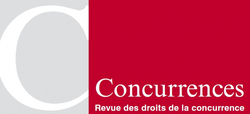
► Référence complète : Frison-Roche, M.A., Le Notariat, profession confortée par la Loi dite "Macron" comme profession essentiellement fiduciaire, in Dossier "L'ouverture à la concurrence du notariat", Revue Concurrences, 2016/4, p.30-34.
____
► Résumé de l'article : La Loi Macron n'a pas pour objet de dénier la spécificité de la fonction notariale, en la transformant en profession ordinaire sur un marché de service. Cette loi applique à la fonction notariale et à l'organisation de sa profession les raisonnements propres à la Régulation, notamment parce que qu'elle institue la profession notariale en "profession de confiance", non pas d'une façon acquise mais d'une façon continuée, la confiance devant se donner à voir d'une façon permanente, de la même façon que les tarifs doivent être régulés et non pas édictés sur la seule proclamation de la souveraineté. La Régulation est aujourd'hui ce qui tient à distance la concurrence et c'est dans cette distance que la profession notariale, ainsi profession d'avenir, doit se tenir.
____
____
🚧 Lire le document de travail ayant servi de base à la rédaction de l'article.
________
Oct. 1, 2016
Thesaurus : Doctrine
Référence complète : L'ESMA et la sanction de Fitch : brèves réflexions sur les pouvoirs de surveillance de l'Autorité de surveillance de l'Autorité européenne des marchés financiers, Bulletin Joly Bourse, 1ier oct. 2016, p.423 s.
Il s'agit d'un commentaire - en français- de la sanction prononcée par l'ESMA (rédigée en anglais) le 21 juillet 2016 à l'encontre de l'agence de notation Fitch.
L'auteur souligne l'ampleur des pouvoirs de l'ESMA sur les agences de notation, qu'elle enregistre, qu'elle contrôle et qu'elle sanctionne, pouvoirs centralisés en son sein et non pas au sein des autorités nationales de supervision.
Le commentaire de la décision est critique, non pas tant sur le cas mais sur les textes qu'il concrétise.
En effet, les premiers pouvoirs sont ceux d'enquête et l'ESMA est venu contrôler la façon dont Fitch a pratiqué la notation des créanciers souverains. Or, la façon dont l'autorité européenne procède dans ces contrôles ne peut être contestée devant un juge, l'auteur estimant que cela n'est pas normal. En effet, l'ESMA peut faire des contrôles à l'intérieur même de l'entreprise sans aucune autorisation judiciaire, alors que par exemple les pouvoirs d'enquête de l'AMF sont encadrés.
Sur le fond, l'agence de notation a été sanctionnée car des employés n'avaient pas respecté l'obligation de confidentialité, les contrôles internes ayant été insuffisamment pour prévenir cette communication.
C'est cette même défaillance du contrôle interne qui est essentiellement reprochée à l'agence de notation à propos du délai de notification, qui n'a pas été respecté par les employés à l'égard de l'entité notée (ce qui est très grave pour celle-ci qui aurait pu fournir des éléments pouvant faire changer la note avant la publication de celle-ci), mais le contrôle interne n'avait pas averti les employés de l'agence de l'importance de ce délai.